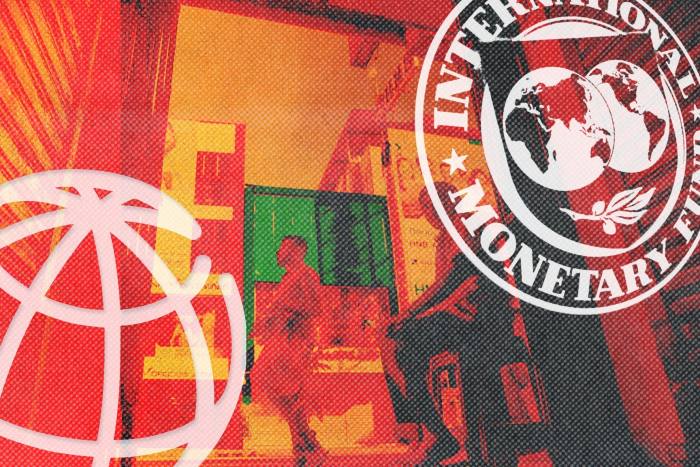Beijing’s rise leaves the Paris Creditors’ Club struggling to find a forum
[ad_1]
The last time emerging markets faced a major debt crisis, in the 1990s, influential creditors, named for traditional centers of diplomacy and finance, were able to quickly meet in private to agree on a solution.
These days, bringing together a more diverse group of lenders has proven to be a more cumbersome exercise.
The members of the Paris Club are mostly Western nations that used to dominate bilateral lending. But their contributions are dwarfed by China, which now lends more to the world’s poorest countries than all other bilateral creditors combined. The London Club of commercial banks has lost its relevance, and borrowers increasingly obtain financing in the bond markets.
These changes have meant that creditor positions are much less aligned. As Anna Gelpern, a senior fellow at the Peterson Institute for International Economics, puts it, the new entrants “are just not integrated” into the club setup of the past.
What replaced the clubs is a blame game, with critics accusing China of lending on terms that give it hidden advantage over other lenders. As its loans have gone sour, the country has become a alternative lender of last resortdefying the IMF and hampering restructuring negotiations by trying to impose their own terms.
For those in default, such as Zambia, Sri Lanka, Ghana and others, the lack of an informal club has meant that debt restructurings have been frustratingly slow, and in some cases taking years. More sovereign issuers are likely to suffer a similar fate soon, as higher global borrowing costs and weak growth push them into insolvency.
Finding the right approach to break the debt impasse will be difficult to achieve, analysts said, and much will depend on Beijing.
In the last week, it seems that soften your opposition to collegiate action. may even have he dropped his insistence that multilateral development banks should join other creditors in reducing the value of their loans. That proposal, which would increase financing costs for the World Bank and other development banks, is widely viewed as a failure by Western economists and governments.
Such a change in China’s position, says Clemence Landers, a senior fellow at the Center for Global Development think tank, would be “an important and long-awaited breakthrough.”
debt stagnation

This is the final part of a series on why countries in economic difficulties are struggling to get ahead.
The Group of 20 major economies, of which China is a member, has developed a common framework. However, only four countries have signed up: Zambia, Chad, Ethiopia and Ghana. In part, that’s because the framework forces debtors to seek equal treatment from all creditors, including those in the private sector, something many sovereigns want to avoid for fear of damaging their creditworthiness.
Meanwhile, bondholders say they are being kept in the dark.
Kevin Daly, a director at Abrdn, an asset manager, says the IMF’s assessment of a debtor country’s needs should be shared with all creditors, including bondholders, early on, and not just after creditors bilaterals, including China, have reached an agreement.
In Zambia, for example, he points out that, as creditors, the bondholders are as big as Beijing. “We’re trying to come up with ideas to speed things up, but we lost months of lead time,” she said. “However, we are not the ones recklessly lending on opaque terms.”
Some say the recent leak of the IMF’s criteria for a deal in Sri Lanka offers a precedent for greater transparency for the private sector. That bondholders knew what to expect early on without hurting negotiations strengthens the case for making it a habit.
Another way to speed things up would be to substantially increase the funding available to multilateral development banks, allowing them to provide more grants or soft loans, rather than full debt relief, to struggling countries. Ways to do this are under active discussion.
In what seems like an attempt to revive the club meetings of the past, the IMF, World Bank and G20 have tried to corral all creditors into a new initiative. The Global Roundtable on Sovereign Debt met in Washington last week, with China and Paris Club members participating in the talks, along with representatives from the private sector.
Little progress was made. Even with more creditors around the same table, effective action will be slow. But for now, with no other viable solutions offered, borrowers and lenders are hoping the forum has a chance to succeed.
[ad_2]

